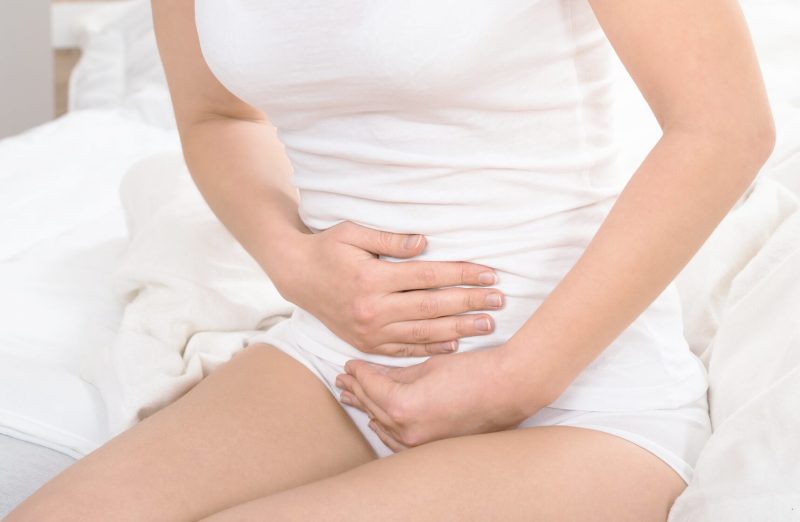If I Miss My Period When Will I Ovulate – Chances are, at some point in your life you will miss a season. When this happens, it can cause confusion or even anxiety, especially if it happens frequently.
And the search for answers sometimes leads to more confusion. That’s why we’re here—to demystify your hormones and help you understand what’s normal, what’s not, and next steps.
If I Miss My Period When Will I Ovulate

Long answer: because we know that “maybe” is not very helpful, it depends on many things, including your age and your general health.
How To Get Pregnant If You’re Not Getting Your Period
If you only started menstruating a few years ago, then yes, it is normal to miss a period from time to time! Your body is still learning how to cycle, and your hormone levels probably haven’t gone down yet.
On the other hand, if you are older and approaching perimenopause, it is also possible to start missing periods from time to time. Your cycle may be longer and more irregular, which can make you feel lost.
If you’re around 20-40 though, in your “peak reproductive age”, missing periods is usually a sign of problems with ovulation or hormonal health. The frequent absence of menstruation is called amenorrhea, and there are many reasons besides pregnancy.
If you’re in this situation, read on to find out why you’re short on time and what you can do about it.
Do You Know What Could Cause…
Missing your period is actually more than just your period. This is because your period is ultimately the result of hormonal activity throughout your cycle, including ovulation.
During the first half of your cycle, the follicular phase, estrogen increases and causes the lining of the uterus to thicken. The increase in hormones also leads to ovulation, or the release of the egg.
After ovulation, during the second half of your cycle (luteal phase), progesterone increases and helps protect the lining of the uterus in preparation for a possible pregnancy.

Finally, at the end of the luteal phase (which is usually a constant length) progesterone drops and the lining of the uterus is shed – and that’s your period!
How Soon Can I Take A Pregnancy Test?
So you can see, in order to get your period, there’s actually a lot that needs to go right, including an increase in estrogen, an increase in LH, ovulation, and an increase in progesterone during the luteal phase.
If you miss your period, and you know you are not pregnant, this probably means you are not ovulating. If you are tracking ovulation, you will be able to tell that you are not ovulating, and you will know that you have not missed your period, it is just delayed.
Or, if you are tracking ovulation and you know you are ovulating, it may be time to take a pregnancy test.
If missed periods are more often caused by missed ovulation, what causes it? And what does this mean for you and your health? For the rest of this article, we will discuss the most common causes of missed periods, and what steps you can take.
Am I Pregnant, Or Is My Period Just Late?
Pregnancy is of course the main reason people suspect they don’t have a period. This is because when an egg is fertilized and implanted in the wall of the uterus, the lining of the uterus does not shed and helps to nourish the pregnancy.
If you are not sure whether or not you are ovulating, or think you may be pregnant, taking a pregnancy test may be a good idea. A typical pregnancy test requires you to wait until the day you expect your period, but you can check up to five days early with Proov Check.
Stress is another common reason for missing periods or delayed ovulation, especially if it is intermittent. Occasional anovulation, or no ovulation, is actually common—it’s estimated that up to a third of cycles are actually anovulatory!

It takes a lot of resources from your body to prepare for a potential pregnancy, so if you are experiencing stress, your body may choose to conserve resources and delay ovulation. If you are constantly stressed, you may forget at times, and this may be a sign that you need to take more steps to control your stress.
Can You Ovulate Without Having A Period?
Adjusting things so you can reduce stress, sleep better, or eliminate stressors will likely help you manage the cycle again. If your stress is severe, we recommend that you contact your doctor.
PCOS is a condition that affects the ovaries and often causes anovulation. Symptoms include missed periods, weight gain, body hair, and insulin resistance, and 1 in 20 women may have PCOS.
For more information, check out our previous blog Understanding Your Fertility with PCOS, to find out why PCOS causes anovulation and what you can do next.
Weight can affect your period in two main ways. One is that adipose tissue (fat cells) produces estrogen, so if you are overweight, you may have high estrogen which can delay or reduce ovulation. Your doctor or nutritionist can help you with the diet
What Days Are Safe For Not Getting Pregnant?
The second way weight affects your period is that, again, if we consider ovulation as something your body can only do when it has the power to sustain a possible pregnancy, the less weight you can ‘ also means delayed or absent ovulation and missed periods.
It can also be related to high levels of exercise, which your body also perceives as stress and often delays ovulation. You’ve probably heard stories of elite athletes missing their periods!
Although many athletes do not consider this a problem, it means that your body is not ovulating as it should and you need more support for your hormones.

In particular, people with eating disorders tend to experience amenorrhea. If you have or think you may have an eating disorder, contact your doctor or call or text the National Eating Disorders Association Helpline at (800) 931-2237.
If I Ovulate Late Will My Period Be Late
If you are currently on hormonal birth control, you probably haven’t ovulated yet. The “period” you experience, especially during the placebo week of the Pill if you have one, is actually just withdrawal bleeding when the lining of the uterus is destabilized due to a lack of hormones.
Sometimes, you may not have bleeding depending on your form of birth control or your current hormone balance. This is usually not a problem, but you can contact your doctor if you are not sure.
If you have just come off birth control, it may take a few months for your hormones to reset and you are ovulating regularly. If you miss a period during this time, it will likely go away on its own.
If you don’t have a regular period six months after taking hormonal birth control, you can make sure you ovulate successfully and go from there.
Understanding Menstrual Cycles
During the transition from peak reproductive age to menopause, you may experience many symptoms including hot flashes, night sweats, and irregular cycles. In fact, missing periods and irregular cycles can be one of your first signs that perimenopause has begun.
If you have completed a year without menstruation, in addition to other symptoms and confirmed hormonal changes, you are considered to have menopause. Being late will trigger different thoughts and feelings depending on your current family planning goals. If you’re on your way to becoming a parent – even if you take some fertility tests – being late can mean feelings of excitement and anticipation as you think about the possibility of pregnancy and why you should take a home pregnancy test
If you are not trying to get pregnant, being late can cause some anxiety when you think about when you last had sex, etc.
:max_bytes(150000):strip_icc()/VWH_Illustration_Preventing-Irregular-Periods-and-Gassy-Stomach_Danie-Drankwalter_Final-cd15a02a764b4e97a705f777502f69a3.jpg?strip=all)
Let’s remember: Pregnancy is one of the many reasons why “Aunt Flo” is late. Whether you’re trying to get pregnant or not, it’s important to know other factors because they can mean something related to your hormonal health.
Can You Take A Pregnancy Test While On Your Period?
This is an important question to discuss before looking at the reasons why menstruation is delayed. The answer has to do with what is considered a normal cycle length.
Less than 10% of women have a cycle that is consistently 28 days long. This is essential because it means that calculations based on a 28-day cycle are not accurate most of the time.
This can include calculating when you ovulate, and when it’s late — late enough to warrant a pregnancy test. Beware of anything with a 28 day cycle!
By cycle length we mean the first day of flow that you know you have your period to the last day before your next flow. (Cycle length is not the length of your bleeding.)
Missed Period And Gassy Stomach: Are You Pregnant?
The length of a normal cycle is 21 to 35 days and most women average somewhere around 29 days. The length of the cycle is also expected to be slightly different. A month is 27 days, the next 30, then maybe down to 26 days.
Everything is fine, within the normal range. Having a cycle that varies from 2 to 5 days in length without other irregularities (eg, pain, unusual bleeding) is not a cause for concern.
So, if a normal cycle is 21 to 35 days, give or take 2 to 7 days, what does that tell us when you are officially overdue? This is very personal.

If you are the type of woman who

